Hearing whistling at night has long been viewed as more than just a sound—it carries layered spiritual, cultural, and symbolic meanings. From warnings of unseen spirits to signs of transformation and intuition, interpretations vary across traditions. Whether mystical or psychological, this phenomenon invites deeper reflection on unseen energies around us.
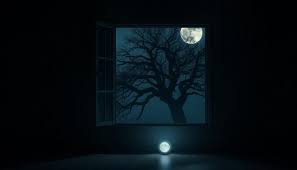
Introduction
Have you ever been alone in the quiet of the night when an unexpected whistle pierced the silence? Was it just the wind—or something more? Across centuries, people have associated nighttime whistling with omens, spirits, and hidden messages from the unseen world. In many cultures, this mysterious sound is believed to carry both caution and guidance, bridging the physical and spiritual realms. Let’s unravel the deeper spiritual meanings of hearing whistling at night, blending history, cultural wisdom, and modern perspectives.
Historical and Foundational Context
The belief in mysterious nighttime sounds can be traced back to ancient civilizations.
- Ancient Folklore: In Indigenous traditions across the Americas, whistling at night was thought to summon spirits—sometimes protective, sometimes malevolent.
- Medieval Europe: Whistling after dark was discouraged, as it was believed to attract witches or wandering souls.
- Eastern Traditions: In certain Asian cultures, whistling at night symbolized calling spirits or inviting supernatural presences into one’s home.
These foundations show that across civilizations, whistling has never been a neutral act—it carried unseen implications.
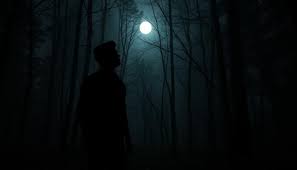
In-Depth Analysis: Key Dimensions of Meaning
1. Spiritual Interpretations
- Warning Sign: In many traditions, whistling signals the presence of spirits, urging caution and awareness.
- Communication: It may be interpreted as a message from ancestors or spirit guides.
- Energy Shifts: Nighttime is associated with heightened intuition; whistling can mark a shift in vibrational energy.
2. Psychological Perspective
From a modern lens, hearing whistling may be:
- A product of auditory hallucinations triggered by stress or fatigue.
- A projection of subconscious fears, especially in silence and darkness.

3. Symbolic Layers
- Transformation: Whistling may symbolize transition or change.
- Intuition: It can act as a nudge to trust your inner voice.
- Thresholds: Nighttime itself symbolizes liminality—between wakefulness and dreams, life and spirit.
Cultural and Global Perspectives
| Culture/Region | Belief About Night Whistling |
|---|---|
| Native American | Invites spirits, often seen as an omen. |
| Japanese | Attracts supernatural beings like yokai. |
| Caribbean | Associated with wandering souls or misfortune. |
| Western Europe | Linked with witches and bad luck. |
| Modern New Age | Seen as spiritual messages or energetic signals. |
This variation highlights how universal yet diverse the interpretation of night whistling remains.
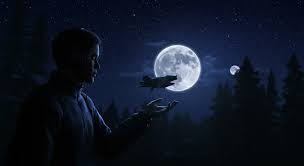
Practical Scenarios and Applications
- Personal Reflection: Use the experience as a moment to pause, meditate, or journal—what were you feeling at that time?
- Spiritual Practice: Some use the sound as a trigger to cleanse energy, burn sage, or recite prayers.
- Scientific Check: Rule out natural causes such as wind, pipes, or tinnitus before assigning spiritual meaning.
Pros vs. Cons of Interpretations
| Perspective | Positive Aspect | Cautionary Aspect |
|---|---|---|
| Spiritual | May signify guidance or intuition awakening. | Could indicate warning from negative forces. |
| Psychological | Encourages mindfulness and reflection. | May cause fear, paranoia, or stress. |
| Cultural | Connects us to ancestral wisdom. | Can perpetuate superstition if misunderstood. |
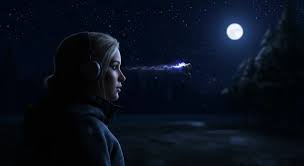
Implications for Modern Life
In today’s world, where science and spirituality often collide, hearing whistling at night can serve as a powerful metaphor. Whether you interpret it as a spiritual nudge, a subconscious signal, or simply the wind, the phenomenon encourages mindfulness, grounding, and curiosity about unseen layers of reality.
FAQs
Q1: Is hearing whistling at night a bad omen?
In some cultures, yes—it’s seen as a warning. But in others, it may symbolize guidance or energy shifts.
Q2: Could it just be my imagination?
Yes. Silence at night amplifies sounds, and the mind can project fears or subconscious thoughts.
Q3: What should I do if I hear whistling at night?
Stay calm, check practical causes, and if unexplained, treat it as a moment for reflection or spiritual cleansing.
Q4: Why do cultures warn against whistling at night?
Because nighttime is associated with spirits and liminal spaces, whistling is seen as an invitation to unseen forces.
Q5: Can whistling be a message from spirits?
Many spiritual traditions believe so—messages may be protective, cautionary, or symbolic of transformation.
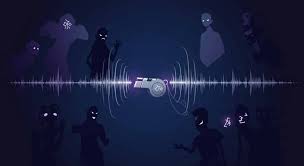
Conclusion
Hearing whistling at night has always stirred curiosity and caution. For some, it’s an ominous sign; for others, a mystical message. The key lies in balancing cultural wisdom, personal intuition, and rational awareness. Whether you see it as spirit communication or a psychological echo, allow it to spark deeper reflection on the hidden dimensions of life.






